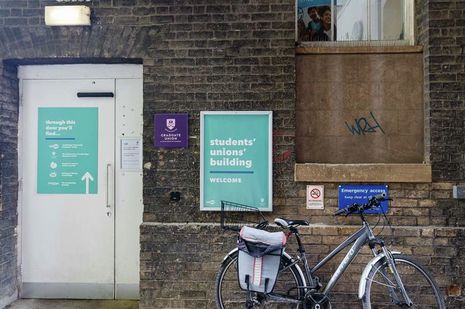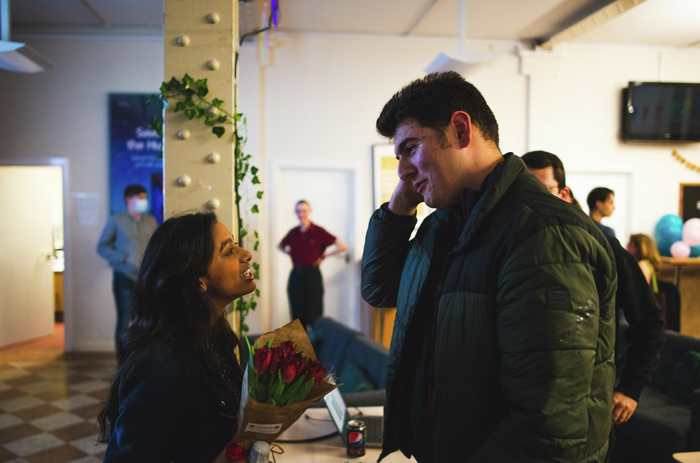Nearly three-quarters of SU Campaign positions unfilled after elections
The Women’s Campaign and the Disabled Students’ Campaign only attracted candidates for one post each, while the BME Campaign saw just two positions receive nominations

Over 70% of Cambridge SU Campaign posts remain unfilled after election results were released on Wednesday (16/03).
While a total of 94 positions across the seven campaigns were open for nominations, only 28 have been filled following this year’s election period, which ran from 11-15 March.
The SU Campaigns are made up of elected representatives which represent different groups in the student population. For six out of the seven campaigns, students must identify as part of the group which a campaign represents in order to stand or vote in its elections (for example, to vote in a Disabled Students’ Campaign election, students must self-define as disabled). The exception to this is the Ethical Affairs Campaign, which is open to all SU members.
The Women’s Campaign and the Disabled Students’ Campaign only attracted candidates for one post each (Zine Officer and Computer Officer respectively), while the BME Campaign saw just two positions receive nominations. None of these campaigns received nominations for the positions of chair, vice chair or treasurer.
The International Students’ Campaign enjoyed the most student engagement, with eight positions out of 13 featuring at least one candidate running for election. The Class Act Campaign, which had 14 positions available, received nominations for six posts. The Ethical Affairs Campaign and the LGBT+ Campaign each received nominations for five roles.
An anonymous student who has been involved in SU campaigns told Varsity that while elections for the campaigns are “historically low in turnout”, they found it “more upsetting than ever” that “so many important roles [are] unfilled across the board.”
Although the SU and individual campaigns did advertise the elections on social media, they suggested that more could have been done to increase publicity and that holding the campaign elections alongside those for sabbatical officers could have helped to increase engagement and turnout.
They went on: “Personally, it feels like the campaign’s influence and importance has been sidelined since the SU merger; we are more of a display than a functional campaign.”
Caredig Ap Tomos, a member of the SU’s democracy committee, told Varsity that elections for the SU campaigns are “always like this” and that “even when engagement was good you’d struggle to fill all the roles”.
He said that one of the main problems is that the campaigns have “far too many roles” and “far too much redundancy”, citing the fact that the Women’s Campaign has an international students’ officer and the International Students’ Campaign has a women’s officer as an example.
He also suggested that low engagement with specific campaigns has also been down to “factors out of their control” - such as the resignation of the SU’s Women’s Officer at the start of January - and that the Covid-19 pandemic has meant that the campaigns have had “much less exposure”.
He went on: “My personal opinion is that they should just do away with most of the roles on each campaign and keep it to a small team of execs and then anybody can join the campaign at any time without needing to be elected.
“I believe it’s the case that anybody can join at the moment, but because the expectation is for you to be an elected officer to really engage, it adds a barrier to entry that doesn’t really help.”
Despite the challenges faced by the campaigns over the past couple of years, Safa Al-Azami, former chair of the Women’s Campaign, is optimistic for the future. She believes that with the election of the new Women’s Officer, “there is a chance for the campaign to be reinvigorated” and that the recent Reclaim the Night march “is likely to have shown the impact of WomCam to many people who may have been previously unaware.”
A spokesperson for Cambridge SU told Varsity that they will be holding by-elections next term for all unfilled roles and that they would “encourage anyone interested to put themselves forward and get involved.”
Reflecting on student engagement in this year’s elections, they went on: “As for all student groups, it’s been an unprecedented couple of years for the Campaigns as we’ve learnt to adapt to new ways of engaging students, and the volunteers who put so much into the SU have had to balance their liberation work with responding to the pandemic in their own lives.
“We’d love to see more people involved in the SU Campaigns and will be reflecting on how we can best involve as many students as possible going forward.”
The campaign elections come shortly after the elections for SU sabbatical officers and the reading week referendum, in which voter turnout was 12% and 16% respectively.
 News / Judge Business School advisor resigns over Epstein and Andrew links18 February 2026
News / Judge Business School advisor resigns over Epstein and Andrew links18 February 2026 News / Hundreds of Cambridge academics demand vote on fate of vet course20 February 2026
News / Hundreds of Cambridge academics demand vote on fate of vet course20 February 2026 News / Petition demands University reverse decision on vegan menu20 February 2026
News / Petition demands University reverse decision on vegan menu20 February 2026 News / CUCA members attend Reform rally in London20 February 2026
News / CUCA members attend Reform rally in London20 February 2026 News / Caius students fail to pass Pride flag proposal20 February 2026
News / Caius students fail to pass Pride flag proposal20 February 2026











